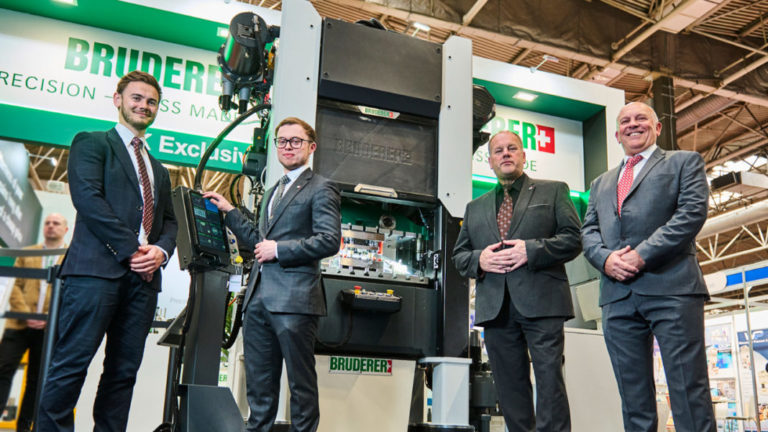With the rise in energy prices, cost of living, stock shortages and many still recovering from the pandemic, business owners are looking for ways to retain employees, increase turnover and stay afloat.
With this in mind, and with insolvencies in the construction industry the highest since 2014¹, leading glass manufacturer Specialist Glass Products has gathered advice from experts in finance, construction and technology on how businesses in the commercial property industry can protect and better prepare themselves for unprecedented challenges in 2023:
Make your business more resilient
The challenges over the past few years have highlighted the importance of business resilience and how business owners need to be prepared to adapt to unprecedented disruptions, whether these be financial or physical obstacles.
Rick Smith, Managing Director of Forbes Burton, adds: “We would expect more businesses to be prepared to adapt to new disruptions following the impact of Covid. But it can take time for business owners to learn lessons and even more to put something into place. At a minimum, business owners should make sure they have crisis management plans to guide them should something unexpected happen. We would also recommend looking at scenario planning.
“You should also seek to create an emergency communication plan – how will staff communicate and work during difficult periods? Cashflow scenarios should also be implemented. For example, what would happen if some product line stopped selling or prices went up beyond your control?
“Marketing plans are also crucial to success. Marketing is often the service businesses drop investment to first in crises, but this is effectively shutting your shop front. If customers are unaware of your operation, how will they trade with you?
“To not have any plans in place these days seems wantonly irresponsible. If any good has come from the turbulent times we’ve lived through, it’s that businesses will have thought more about their very existence and how they can remain a viable and successful entity.”
Optimise your admin processes
Improving cash flow will seem like an obvious option for keeping a business afloat, but it may not be as simple as getting more customers through the door. Whilst ensuring the practical side of your business is in operation, the financial and administrative side is equally important, and you could be wasting money where it’s not needed.
Rory Spence of The Wow Company shared: “Some companies offer very competitive and simple invoice factoring solutions. This can be great if you have large invoices outstanding with clients who you know will pay late or have lengthy payment terms. Over the last five years, there has been a huge increase in the number of businesses using direct debit solutions for client payments from clients, particularly useful for businesses with recurring payments.
“Cashflow forecasting can often be a lengthy manual task, but it doesn’t have to be! Some tools will integrate your finance software and provide automated forecasting, which can save a lot of time each month and provide really useful insights.
“I’d encourage small businesses to think carefully about what their standard payment terms are. Sometimes large corporations will demand 60 or even 90-day payment terms, but in other cases, we might be able to influence payment terms. You’re not a bank and shouldn’t be offering 30-day payment terms interest-free if you can avoid it.
“Maintaining cash flow is more important than ever before, and businesses should be considering how many months of overheads they’ve got sat in their bank account as a buffer. Three months is good, and six months plus is ideal. This means that if your business has a downturn in fortunes, you’ve got a buffer to lean back on while you try to turn things around.”
Save energy where possible
Rising energy costs are hitting us hard, personally and professionally, and most businesses now have sustainability as a critical focus. Many are looking to save money where possible whilst working efficiently to turn a profit. Business expert and CEO of tech firm Connectus, Roy Shelton, explain
ns: “Electricity is generally the biggest cost for most businesses to power computers, machinery, tools and other equipment staff need to use. But there can also be huge costs for heating, air-conditioning (AC) and water.”
“To get the best efficiency out of your existing equipment, ensuring it’s maintained effectively is key. When looking at your building upgrade plans, make sure you’re looking for A++ efficiency products, especially those in high-cost areas such as AC, lighting and computers. Solar panels are a smart long-term strategy to save on energy costs and ensure that the energy used in your business is clean and renewable. They may have expensive upfront costs but will recover that over several years.
“No matter how good your systems are, if you have leaks and drafts in your building, your premises won’t be energy efficient. Invest in insulation and double-glazed windows to cut down your energy consumption. Certain roof tiles are better at reflecting the sun’s rays, or you can use heat-reflective paint to reduce the amount of heat absorbed and put less pressure on cooling devices.”
Increase productivity in workspaces
The pandemic has severely changed how businesses use their workspaces. Whilst some businesses have thrived from implementing hybrid working, many want to encourage more staff back into commercial spaces and improve the productivity of those working there.
When designing commercial spaces, it’s vital to remember what those working there will want from the workspace. It’s more complex than making a commercial space look appealing or attractive to visitors. The space should help improve efficiency and increase the overall work of the business.
Helen Walker, Business Partner at OT Group, shared: “For colleagues at all levels, the workplace should be more than a central hub to tick off a to-do list and receive an attendance mark, but a productive place for collaboration, creativity, learning, and belonging. As such, design is playing a crucial role in fostering human-centric workplaces – not least when it comes to neurodiverse employees.
“Every step of a workplace transformation project should be driven by the needs, desires, and pain points of employees and integrated into the wider business objectives to create harmonisation.
“When investing in workplace design that’s fit for the future, clients want it to retain its quality long term. That means placing emphasis on not just styles but substance too – think durability, ergonomics, and technology that’s built to last.”
Look out and shop around for alternative materials
Stock shortages and supply chain issues have appeared frequently in the news recently. Whilst these issues may start minor, they can go on to create a domino effect and cause bigger issues. A recent survey by IronmongeryDirect found that 78% of tradespeople have struggled to source needed materials for work in the last year, with Bricks, Timber and Steel being the most challenging options to gather.
Richard Cano, founder and director of Portsmouth-based construction company QBuild, shared: “Since Covid, we’ve found importing some materials a little harder. Things are calming, but typically our wholesalers will only guarantee their prices for seven days due to fluctuations. We have to advise customers about an increase in these costs. The issue is when we quoted for a project six months and now have to revise costs in areas where materials are now limited.”
Andrew Taylor, managing director of Specialist Glass Products, advised: “Delays due to material shortages have become more and more common for businesses in the construction sector. Whilst you can’t predict how materials will be affected over the next few months and may have strict instructions on what materials to use, properly researching your options beforehand may help you find alternatives that may be more sustainable and cheaper.
“We’ve seen a big growth in the demand for glass over the past 12 months, especially with businesses looking for more sustainable materials. Glass is a much more eco-friendly alternative to materials like bricks or steel. As it doesn’t rust or wear down easily, it will last much longer than other materials and won’t need replacing or touching up frequently. This can also help to save money in the long run.”
“Whilst it can be easy to assume a drop in profits is simply down to reduced work or customers, you could be losing money due to inefficient processes internally. When faced with situations like we are now, it’s vital to look at a business as a whole and see where you can make changes.”






